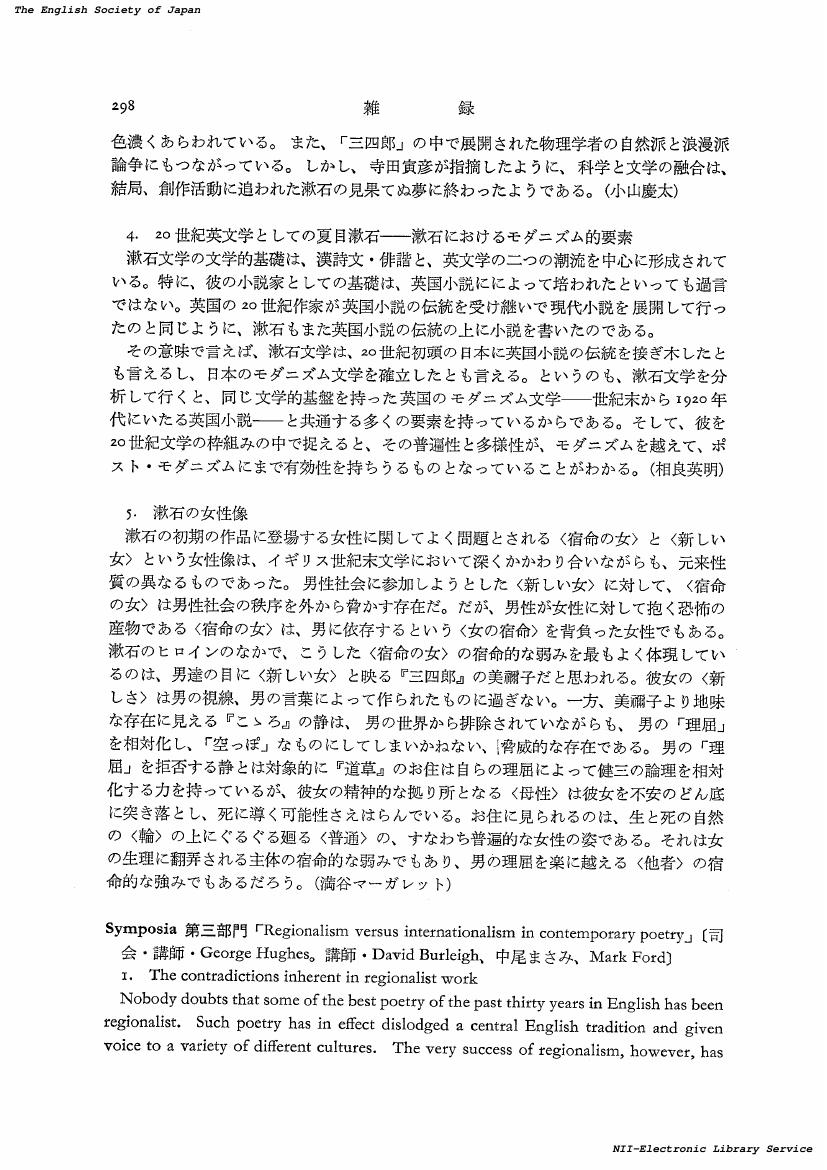2 0 0 0 OA 夏目漱石とジョウゼフ・コンラッド
- 著者
- 相良 英明
- 出版者
- 日本比較文学会
- 雑誌
- 比較文学 (ISSN:04408039)
- 巻号頁・発行日
- vol.20, pp.40-50, 1977-12-25 (Released:2017-06-17)
Sōseki Natsumé (1867-1916) was a great novelist in the 20th century Japan, practically contemporaneous with Joseph Conrad (1857-1924). His views on Conrad’s early stories and sea novels are found in his essays, notebooks and marginal notes, and two of his novels show some evidences of the influences of Conrad. According to Soseki’s notebook, he read “Typhoon” presumably in spring or summer in 1906, and made a comment in it; “Literature of man’s will— cf. Typhoon”. And he wrote The 210th Day (i.e. the stormy day of typhoon), a story of will, in September of the same year. Its plot resembles that of “Typhoon”, the heroes facing a storm bravely, though not at sea but on the mountain. Also Soseki’s descriptions of the storm and scenes remind us strongly of Conrad’s. Soseki’s The Miner written in 1908 also resembles, in the theme and construction, Conrad’s “Heart of Darkness”. Between them, there are remarkable parallels in the pilgrimage of the narrator into the heart of darkness. Yet, what is really more significant may be that Soseki and Conrad had much in common in their personality, problem of ego, dualistic view of the world, and way how to live. Though in the later years, their ways as writers were different.
1 0 0 0 OA ジョウゼフ・コンラッドにおける孤独の意味
- 著者
- 相良 英明
- 出版者
- 英米文化学会
- 雑誌
- 現代英米研究 (ISSN:24330736)
- 巻号頁・発行日
- vol.10, pp.10-24, 1976-06-01 (Released:2017-09-07)
- 著者
- 相良 英明
- 出版者
- 一般財団法人 日本英文学会
- 雑誌
- 英文学研究 (ISSN:00393649)
- 巻号頁・発行日
- vol.70, no.2, pp.298, 1994-01-31 (Released:2017-04-10)

